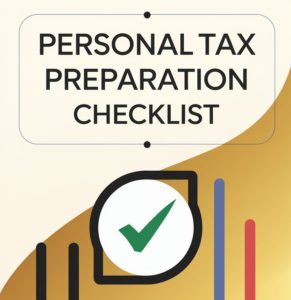Two things are certain in life, death and taxes. It can be difficult to keep track of the various taxes. At least with this particular tax, it should benefit your local community.
Per Capita Tax may sound like a complex tax, but it’s a fairly straightforward tax considering.
This tax, often imposed by local governments, aims to generate revenue for essential services like education, infrastructure, and public safety.
For residents, understanding this tax is crucial; it directly impacts your financial obligations and community funding.
Let’s go over everything you need to know.
THIS POST MAY CONTAIN AFFILIATE LINKS. PLEASE READ MY DISCLOSURE FOR MORE INFO. Which means if you click on any of the links, I’ll receive a small commission at no additional cost to you.
Key Takeaways
- Head Tax: The Per Capita Tax is often referred to as a head tax because it is levied per individual.
- Local Services Tax: The Per Capita Tax is distinct from the Local Services Tax, which is typically withheld by employers.
- Tax Jurisdiction: Residents within a tax jurisdiction are subject to the Per Capita Tax.
- A Tax Exoneration: Some individuals may qualify for a tax exemption from the Per Capita Tax due to specific conditions.
- Tax Collector: The local tax collector is responsible for managing Per Capita Tax payments and exonerations.
Keep reading to get everything you need to know about this tax season tip.
What is a Per Capita tax?
Per capita also means “per person” and According to Berkheimer Tax Innovations,
The Per Capita Tax is a flat rate local tax payable by all adult residents living within a taxing jurisdiction. For most areas “adult” is defined as 18 years of age and older, though in some areas the minimum age may differ. This tax is due yearly and is based solely on residency, it is NOT dependent upon employment or property ownership.
In other words, if you live in an area and are of adult age, you may be subject to the Per Capita tax.
Also, the taxes collected from this is usually put back into a local administration such as the school system.
Get your FREE Tax Refund Estimator TODAY!
Who Owes the Per Capita Tax?
The Per Capita tax is applied to everyone residing within a district (generally applies to individuals 18 years and older).
If you’re unsure of your current jurisdiction, you can always check with the Census Bureau and see. You can also check with your local government.
As mentioned, typically it’s for those of adult age, 18 years or older. You may find that some areas require all living individuals to pay the tax, including newborns.
Check with your local government to see who is responsible for paying.
Get your biggest tax refund guaranteed with TurboTax. The #1 best selling tax software. Start today.
How is the Per Capita Tax Calculated?
Unlike your Social Security or other paycheck taxes, the Per Capita tax is a flat rate tax for all individuals.
Also called the “Head Tax” or “Poll Tax”, there is no variation of the tax due by person. You can calculate an estimate by using the following guide:
Tax Revenue Per Capita = Income Tax Revenue divided by The Taxable Population
Whether you’re employed or not, you are required to pay the same amount. Now the amount may vary from year-to-year, but that is up to your local government and jurisdiction.
Does the Per Capita Tax Come Out of My Paycheck?
As mentioned earlier, the Per Capita tax does not come out of your paycheck. Your mortgage company, like escrowing your property taxes, also does not pay it.

Instead, you will receive a bill that will determine how much you owe. From there, you can follow the instructions for paying your tax bill.
Tax Amounts and Legislation
The Per Capita Tax is governed by two primary legislative acts in Pennsylvania:
- ACT 511: Under ACT 511, municipalities and school districts can levy a Per Capita Tax of up to $10.00.
- ACT 679 : Additionally, ACT 679 allows school districts to impose an extra $5.00.
These amounts are fixed unless altered by local government decisions, providing a predictable tax obligation for residents.
Exoneration and Exemptions
Certain individuals may qualify for exoneration from the Per Capita Tax. Exonerations are typically granted for reasons such as low income, disability, or active military service.
To apply for an exoneration, residents must submit the necessary forms to their local tax collector annually.
This process ensures that those who are unable to pay due to qualifying conditions are not unfairly burdened.
Tips to Prepare for Your Taxes
- You can prepare to pay this tax like you would with your mortgage. Have a savings account set up where you contribute a little money each week. That way you’re not left with a hefty bill you need to pay at once.
- Automate this process by making the transfers automatic. This ensures you put the money aside before you have a chance to spend it. If you’re a spender, maybe put the savings account with an online bank.
File Your Taxes with Ease from Home Today with TurboTax!
My Final Thoughts
While no one likes taxes, it’s something we all have to live with. The Per Capita tax is designed to help build the community in which you live.

For a better understanding, ask your local government where the dollars are allocated. It might make paying the tax a little less painful.
I hope this article helped you gain some control of your tax plan this year. Remember not to stress out. Don’t forget to check out Tax Forms page for any additional online tax checklists and forms you may need this year.
Until the next money adventure, take care from The Handy Tax Guy Team!
If you liked this article, then you’ll love these:
- How to Save Money for Vacation in 3 Months (23+ Money Saving Tips)
- Do I Need to File a Tax Return?
- Pay Off Debt Quickly with These 4 Simple Tips
- How to Save $3,000 in 6 Months (Save Money Fast)
Photos Courtesy of Canva.com!

Disclaimer Statement: All data and information provided on this site is for informational purposes only. The Handy Tax Guy makes no absolute representation of the correctness, mistakes, omissions, delays, appropriateness, or legitimacy of any information on this site. **Note: Each client circumstance will vary on a case-by-case basis**
(Original Article Date: November 29, 2021/Updated on January 21, 2025)




